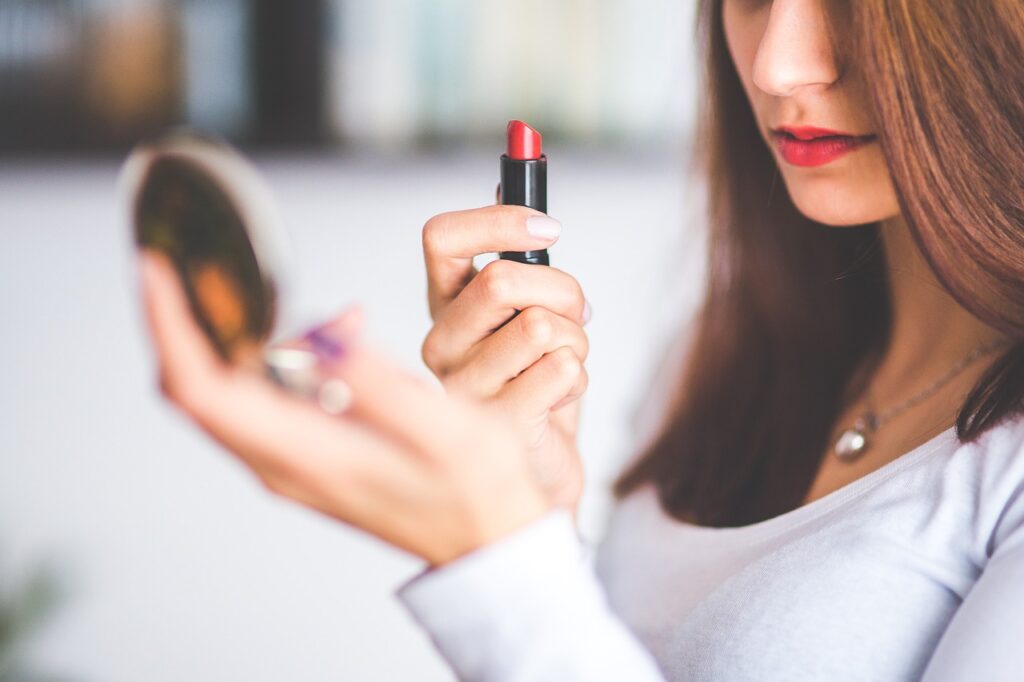Is makeup really safe for your skin?

Makeup has evolved from a simple form of cosmetic products to a recognized and popular art form. It is a means of self-expression and an integral part of many people’s daily lives. However, concerns still remain about the safety of makeup and its potential impact on skin health. If you are one of those who are skeptical about applying makeup to your skin, this article will help you find out what exactly is in popular makeup products and whether they are good for your skin. Read on to find out more!
1. Know what ingredients are in your makeup
Understanding the ingredients in cosmetics is critical to assessing their safety for your skin. Cosmetics are composed of several types of ingredients, including emollients, preservatives, pigments, fragrances and various chemicals. While most of these ingredients serve to enhance the effectiveness and longevity of the product, some substances are of concern due to their potential side effects.
Ingredients such as parabens, phthalates, sulfates and formaldehyde have come under scrutiny due to their links to skin irritation, allergic reactions and even possible long-term health risks. However, regulators around the world impose stringent requirements on cosmetics, requiring safety assessments and enforcing safety standards before products reach consumers.
2. Recognize your skin allergies
For people with sensitive skin, navigating the world of makeup can be a daunting task. Skin sensitivity often results in negative reactions to certain ingredients in cosmetics, causing redness, itching, rashes, or acne. Allergic reactions can be caused by fragrances, dyes, preservatives or other components that make up makeup products. Performing patch tests before full application of cosmetics can help identify potential sensitivities or allergies.
Additionally, expired or contaminated cosmetics can cause bacteria to grow, leading to infections or skin irritations. Regularly checking expiration dates and practicing good hygiene, such as cleaning makeup tools and periodically replacing products, can reduce these risks.
3. Understand how makeup affects skin health
Although makeup itself is not harmful to the skin, certain activities associated with its use may have consequences. Improper removal or prolonged wearing of makeup can clog pores, lead to acne, or aggravate existing skin conditions. Moreover, the constant use of heavy cosmetics, not allowing the skin to breathe, can disrupt its natural processes, which in the long term can affect its health.
However, the beauty industry has seen significant advances in cosmetic formulations. There are now non-comedogenic and dermatologist-tested products designed for a variety of skin types and concerns. These formulations prioritize skin health without compromising the aesthetic appeal of makeup.
Practice skin-friendly makeup techniques
1. Choose quality products
Choose reputable brands that are committed to safety and creating skin-friendly formulations. Look for products labeled “hypoallergenic,” “noncomedogenic,” or “dermatologist tested.”
2. Learn about different makeup products
Check the ingredient list to avoid products that contain substances that may cause skin sensitivities or allergies.
3. Always choose effective makeup removers
Always remove makeup before bed using a gentle cleanser or makeup remover suitable for your skin type. Double cleansing thoroughly removes makeup residue while allowing skin to breathe overnight.
4. Practice good hygiene
Clean your makeup brushes and sponges regularly to prevent bacteria buildup and possible skin problems.
5. Establish a proper skin care routine
The priority of skin care is to cleanse, moisturize and apply sunscreen to protect your skin from environmental damage.
Here are some natural makeup options you can try.
When it comes to makeup, healthy skin doesn’t mean compromising style and aesthetics. Some skin-friendly makeup products are suitable for different skin types, providing a combination of beauty and skin care.
1. Mineral-based foundations
Choose mineral-based foundations that do not contain harsh chemicals or fragrances. Often containing ingredients like zinc oxide and titanium dioxide, these products provide lightweight coverage while being gentle on sensitive skin.
2. Hypoallergenic concealers
Look for concealers that are formulated specifically for sensitive skin and are free of potential irritants such as fragrances and preservatives. These concealers provide coverage without aggravating skin conditions or causing allergies.
3. Natural lipsticks
Lipsticks with natural oils, shea butter or vitamins nourish lips and give them vibrant color. Avoiding lip products that contain drying agents or heavy metals will help keep your lips healthy.
4. Fragrance-free styling sprays
Fragrance-free and alcohol-free makeup setting sprays help set makeup without causing irritation. These sprays keep your makeup fresh without compromising skin comfort.
Choose makeup products with gentle formulas that are free of potential irritants and tailored to your skin’s needs to help you maintain a healthy, radiant complexion while also allowing you to express your unique style. Always test new products and prioritize skin care along with makeup to achieve optimal skin health.